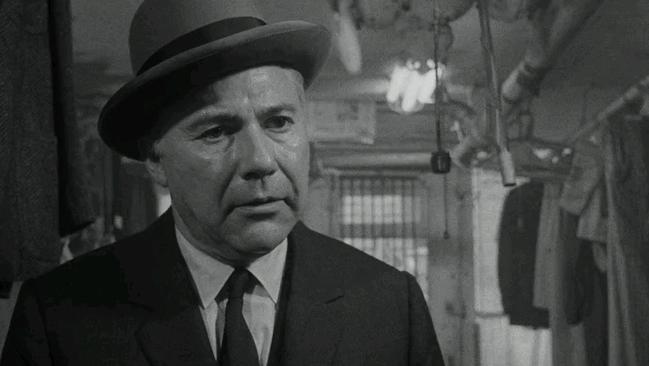Activist star a rare survivor of Hollywood’s black ban
Actor John Randolph, banned from television for a decade as a Communist sympathiser, was born a century ago today.

Today in History
Don't miss out on the headlines from Today in History. Followed categories will be added to My News.
Having informed interrogators of his date and place of birth, education and profession, “lesser known Broadway actor” John Randolph was asked if he was currently working.
“With no intention to make any comment about this committee hearing,” Randolph answered, “I’m in a play called Much Ado About Nothing”. The banter ended when House UnAmerican Activities Committee interrogators asked about his communist associations.
Randolph, born 100 years ago today, followed the response of his peers and refused to answer, citing the Fifth Amendment which protects against self incrimination.
Randolph’s appearance, with his actress wife Sarah Cunningham and five other actors at the HUAC hearing in New York in August 1955, came midway through a decade of career stagnation under black bans imposed on television and film roles for actors accused of communist activity.
Of Russian and Romanian descent, Randolph was born Emanuel Hirsch Cohen in the Bronx on June 1, 1915. He was renamed Mortimer Lippman at age 12 when his mother remarried. He changed his name again while studying and teaching acting with Stella Adler, where he met Cunningham.
Randolph began his acting career in the 1930s with the Federal Theatre Project, initiated as a Depression-era New Deal program to fund theatre and live artistic performance. He then helped establish the Actors Studio, which produced social issue works such as the documentary Medicine Show (1940), which argued for a US national healthcare plan.
Randolph and Cunningham married in Chicago in January 1942, during his run in Orson Welles’ production of Native Son, the story of “a Negro boy’s snarling rebellion against a white man’s world”.
Both joined Broadway actors on a train trip to Washington DC in 1947 to support the Hollywood Ten, a group of writers pushing to remake the Screen Writers Guild as a union, called before a HUAC hearing.
As the writers were cited for contempt and later jailed, three former FBI agents, John Keenan, Kenneth Bierly and Theodore Kirkpatrick published the Counterattack newsletter, dedicated to “crushing the communist fifth column”.
Randolph investigated the black lists with an American Federation of Television and Radio Artists committee, which pledged to defend members against work bans. But while working for CBS television in 1951, a producer told him New York supermarket owner Laurence Johnson had named him as a communist and would put up signs accusing CBS of supporting communist actors.
“The theatre kept us alive but from 1951 I was virtually black listed from television,” Randolph said.
A booklet Red Channels, commissioned by former projectionist Roy Brewer, who testified to HUAC that communists were behind bitter industrial disputes in Hollywood, had been published in 1950.
Brewer boasted he could “tell who’s a communist in five minutes, I’m never wrong”.
Red Channels, compiled by broadcaster Vincent Hartnett and Kirkpatrick, listed 151 writers, directors and performers as members of subversive organisations. The list included Leonard Bernstein, Burl Ives, Arthur Miller, Dorothy Parker and Pete Seeger.
In 1953 Hartnett and Johnson started Aware, Inc and advised broadcast companies on who could be employed as non-communists.
Randolph later complained that if he was approached about TV roles, producers then had “to check with Aware to see if I was politically acceptable”.
Admitting he was an activist, Randolph explained that “during the Depression you would have to be an idiot not to be a radical, with 17 million unemployed”.
After a campaign to expose Aware and Hartnett, who charged $7.50 for each name he investigated, Randolph was called before HUAC. Accused of fundraising and supporting subversive causes, including demanding better housing for war veterans and protesting against the death sentence for Willie McGee, convicted in 1946 of raping a white woman in Laurel, Mississippi.
Randolph was not cast in another television role until telemovie The Closing Door in 1960. Director John Frankenheimer ignored the Hollywood blacklist to cast Randolph, along with fellow black-listed actors Will Geer and Jeff Corey, in Seconds in 1966. Cunningham returned to television in 1964.
As the mark against his name faded, Randolph joined the tiny 10 per cent of actors who were able to rebuild their careers after appearing on the communist blacklist.
He won roles in Serpico (1973), Prizzi’s Honor (1985) and You’ve Got Mail (1998), and played Roseanne Barr’s father on her popular sitcom. He appeared just once as dad Frank Costanza on Seinfeld.
Randolph died in 2004.
Originally published as Activist star a rare survivor of Hollywood’s black ban


